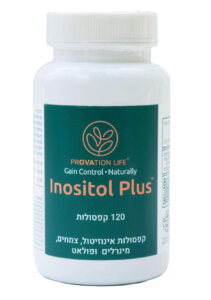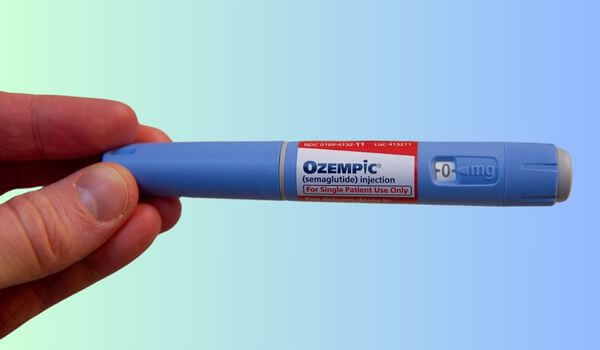
PCOS is a complex condition that affects many aspects of a woman’s life. I’ll offer a very short outline of its aspects and causes. If you want a more comprehensive story about the typical experience with PCOS, please visit the blog posted by my colleague here.
What are the causes, symptoms, and diagnosis of PCOS?
Polycystic Ovarian Syndrome is a health issue that affects women during their childbearing years and is marked by disruptions in the balance of hormones responsible for regulating the menstrual cycle. This condition, impacting 10% of women in their reproductive age, can result in irregular periods and potential difficulties with fertility. Signs of PCOS include cysts on the ovaries, which are underdeveloped follicles that did not mature properly and failed to release an egg. This can be picked up in an ultrasound test.
Although the precise cause of PCOS remains unclear, it is thought to arise from hormonal imbalances, especially the excessive production of male hormones (androgens) within the ovaries. High levels of testosterone are a feature of PCOS, with 80%-90% of diagnosed women exhibiting elevated levels. This was true in my case as well, where blood tests showed levels of active testosterone well above normal.
Unfortunately, there isn’t a definitive way to diagnose PCOS. Instead, a standard diagnostic assessment involves a combination of observations, blood tests, and imaging. The standard rule used to diagnose PCOS is called the Rotterdam Criteria, requiring the presence of two out of three characteristics: irregular menstrual cycles (having less than eight menstrual cycles per year or cycles lasting longer than 35 days); high levels of androgens in blood tests (or showing signs like excessive body hair, acne, and hair loss); detecting 12 or more follicles on one or both ovaries (seen in ultrasound scans.) The Rotterdam Criteria also requires excluding disorders with similar symptoms experienced with PCOS, such as thyroid issues, high prolactin levels, and adrenal gland disorders, to ensure an accurate diagnosis.
My Life With PCOS
The impact of PCOS can differ greatly between individuals. In my case, I experienced most of the classic symptoms, including irregular and sporadic menstrual cycles, weight gain, and some of the signs of Metabolic Syndrome, like high blood pressure, elevated blood sugar levels, and abnormal cholesterol levels. As a result of these, I was experiencing anxiety and depression to such a degree that it was becoming a chronic illness.
There are suggestions that genetic factors may play a role in this condition. For me, I was in the unhappy position of not being able to ask my mother if she had experienced any of these symptoms since she had passed away a few years before they started to show up in my own body. Additionally, I was the only girl among my siblings, so I had no sisters who I could ask. There is some evidence that prenatal experiences might also contribute to the development of PCOS so it could very well have been that I was preordained to develop the condition either because of my genes or from my time in the womb. The lesson to be learned from this is that it’s important to keep in mind the possibility that the wide range of symptoms typical of PCOS can indeed be coming from this condition because they could also be wrongly attributed to other causes.
I quickly learned that from the standard medical viewpoint, PCOS is an incurable condition. Doctors can prescribe several treatment options that address specific symptoms on their own, but that does nothing to tackle the patient’s overall condition. I did make use of the “gold standard” treatment of Clomin when I was trying to become pregnant with my third child (after having no difficulty in the earlier years when PCOS had not yet manifested.) Clomin is not specifically designed to address the fertility issues produced by PCOS but does promote the production of eggs for women who have difficulty falling pregnant due to unexplained infertility.
I was able to keep the other symptoms that I experienced with PCOS in check, like high blood pressure and elevated blood sugar levels, by taking extra care of myself in my daily life. This meant sticking to a basic GI (Glycemic Index) diet that lowered fats and sugars and boosted fiber levels. I also lowered my intake of wines and beers and swearing off sweetened colas, chocolates, and ice creams (except for special occasions because…I’m human!)
Most importantly for me, after many years of frustration trying many different suggested treatments, I was introduced to a supplement called Inositol Plus that was specifically designed to treat PCOS, unlike the purely symptomatic approach that I had been led to believe was the only way to deal with the condition.
How Inositol Plus Changed My Life

Inositol Plus allows me to take a pragmatic and holistic approach to managing my PCOS systems. Each Inositol PLU capsule delivers eleven naturally occurring substances that combine synergistically to restore the balance of my hormones. Myo-inositol plays an important role in the production of neurotransmitters in the brain and affects hormone actions. It is partnered with berberine, Coenzyme Q10 (CoQ10), and zinc to boost the capsule’s effects on hormone levels and fertility. It also has folic acid, so I can use Inositol to replace my previously prescribed folic acid booster. Myo-inositol supplements are designed to improve ovarian function and the stability of menstrual cycles in PCOS patients. It worked for me because, after just four months, I am back to regular and predictable periods and start to plan ahead for a happy outcome.
Myo-inositol also has an important effect on insulin signaling and can improve insulin sensitivity. Each Inositol Plus dose combines chromium, cinnamon, and magnesium to improve glucose metabolism and lower the risk of developing type 2 diabetes.
Inositol Plus also made a notable impact on my cardiovascular health. It combines three ingredients important for controlling heart functions. Curcumin is an anti-inflammatory that keeps the arteries and veins in optimum condition. Potassium can help control the high blood pressure associated with PCOS. Red yeast can help lower cholesterol levels, which may be the root cause of cardiovascular diseases.
Best of all, Inositol Plus is an over-the-counter supplement manufactured to the highest standards of consistency and safety. I have every reason to believe that discovering this new solution is helping me manage my PCOS and on the path toward my goal of optimized health.
















